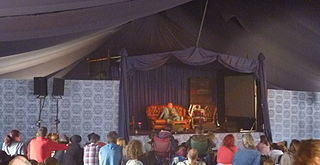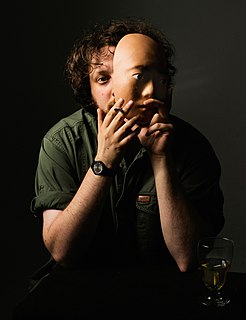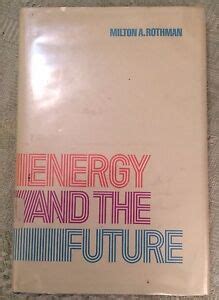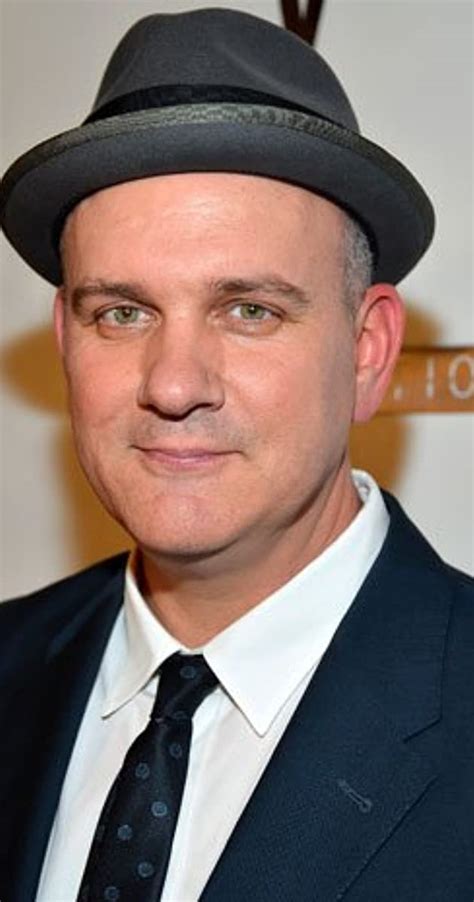A Quote by Aimee Bender
I don't eschew autobiographical writing, but I'm not interested in mine to be so straightforward. The things that tend to move me the most are often those that I have to figure out its meaning for myself. The human being's ability to make a metaphor to describe a human experience is just really cool.
Related Quotes
One of the things that I tell beginning writers is this: If you describe a landscape, or a cityscape, or a seascape, always be sure to put a human figure somewhere in the scene. Why? Because readers are human beings, mostly interested in human beings. People are humanists. Most of them are humanists, that is.
It always seems to people that I'm avoiding saying, 'It's autobiographical,' but I really do believe that human beings make stories and they make themselves. If I told you the same story twelve years ago, I could have emphasized something different. The importance changes, the meaning of things shifts over time. Also, I think all art is autobiographical. Every endeavor is full of impressions of ourselves.
What's hard to do is describe why you like something. Because ultimately, the reason things move people is very amorphous. You can be cerebral about things you hate, but most of the things you like tend to be very emotive. It's really hard to do a literary reproduction of what makes you happy. That's what I try to do. If nothing else, it seems like there's enough people out there telling the world what isn't cool, or what's terrible, or what's depressing. I think there's an element of cynicism in my writing, but I'm an optimistic cynic.
Motherhood is this sort of "curtain lifting" of tremendous power that we have individually as women. It's tremendously freaky to have a human being grow inside your body and eventually turn into a human being, and then birth that human being, and then have them be separate from you. Those things are scary. It's also really, really scary to face the idea of losing a child and losing someone you love more than you've loved anything before. All of those things are innately really terrifying, and what it does to me is bring me to a direct kind of confrontation with my human vulnerability.
What distinguishes a human being from a computer? The ability to add up numbers? The ability to understand language? The ability to be logical? It is, of course, none of the above. It is the ability to play. Computers cannot have fun. They cannot fantasize. They cannot dream, they cannot experience emotion or summon intuition. These rare, precious qualities come naturally to every child on this earth yet they tend to be seen, by well meaning adults, as faults, foibles and failings. In pushing tiny toddlers to 'perform', we rob them of the ability to imagine.
I'm interested in philosophy, I studied it, and I also admit I try to read things that are way above me. I have a limit: I take what I need from it, and I do find that some of my favourite philosophical writings tend to be poppier. I admire smart people who are able to describe things simply or in a human, readable way.
To most humans, a universe consisting of particles banging about and doing what they have to do seems cold, barren, and without meaning. Meaning, however, is not something that floats in space, permeating the universe like a nebulous, mystical cloud. ... Meaning arises out of the working of the human mind, and therefore exists only in the human mind. The meaning of existence is whatever you want to make of it.
I do like to make people cringe. That discomfort, tension, embarrassment, pain - all of those things interest me, and not through some sort of masochistic or sadistic impulse. It illuminates what being a human being is. It taps into what it is to be human more incisively than stuff that's just very pedestrian.
I've come to learn as an adult that love is a hell of a drug. It's one of the most dangerous things that human beings can have. It's also one of the most beautiful things that human beings can possess because love, on one hand, gives you the ability to care for a human being sometimes more than you would care for yourself. Love, unfortunately, sometimes gives you the ability to forgive somebody and blind yourself to the truth.
There have been plenty of things that I've written that other people haven't cared about, but it hasn't stopped me from being a writer. So, I don't even think about other people. I'm just interested writing about human beings so if somebody calls and says, 'We'd like you to do it,' I'd say, 'That sounds like a cool idea.'







































